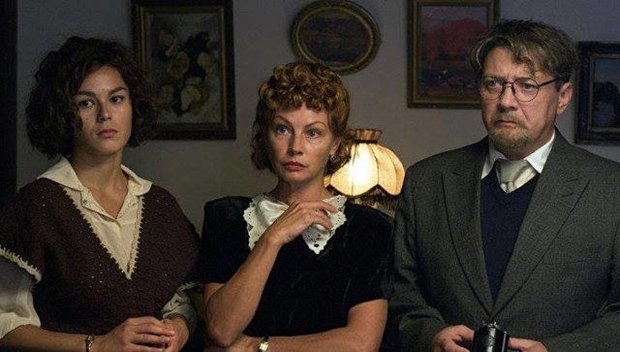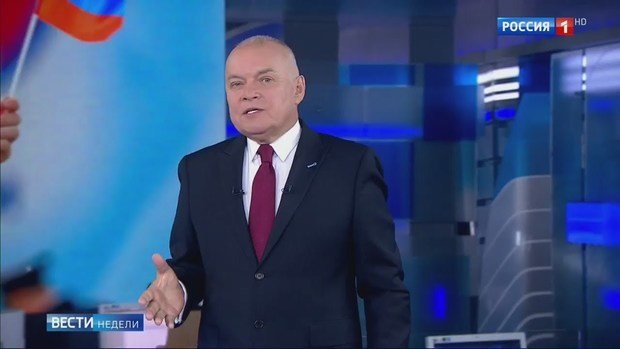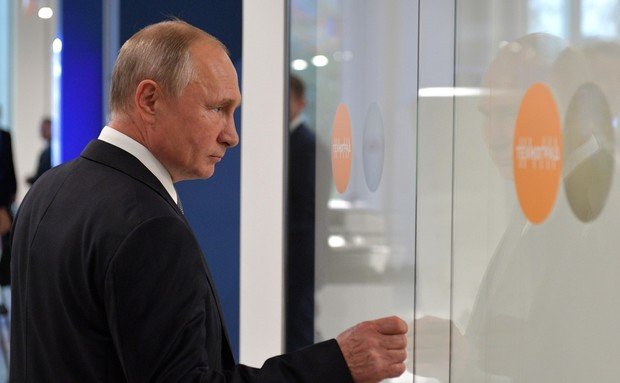''Your talent and notoriety won't save you even if you're loyal to power. This is why everyone must be afraid''
Marat Gelman on authorities, the intelligentsia and depression. Part 1
The Russian intelligentsia is in depression, supposes political strategist and collector Marat Gelman who has been living in Montenegro since 2014. The reason to be in it is simple – if it's impossible to change anything in the country, why should one act? In an interview of the gallerist with Realnoe Vremya, we tell about this and the censorship, Vladimir Putin's attitude to artists and the sentence awaiting Kirill Serebrinnikov.
Censorship in Russia is prohibited, but everyone censors, even customs workers
Mr Gelman, talks about the necessity of censorship in the art have appeared again due to a scandal around Holiday film about the celebration of New Year in a family of an appointee in sieged Leningrad. Have we perhaps had censorship for long?
Cinema has always had censorship. And, by the way, legal censorship – when some films are given a film distribution certificate or not – turns out by far better than the current situation. Now censorship is forbidden here, but everyone deals with censorship – we send an exhibition to the Dresden gallery, a customs worker checks if the document corresponds to the paintings, sees a disrespectful portrayal of a president in a work of Blue Noses group and decides he won't allow such a painting to go abroad, that's to say, he censors it. Or, for instance, the State Duma decides to prohibit the Bolshoi Theatre from staging The Children of Rosenthal or my exhibition Russia 2. For this reason, not legal censorship but widely spread censorship – the Duma, the president's administration or the Church – is the problem.
As for the film Holiday, here I want to say there is such a rule: art doesn't have prohibited themes. Yes, a certain composition can be prohibited, for instance, if it incites to violence or something criminal. If people want to prohibit a composition because of a certain topic like the tsar and his lover, such prohibition is negative. The romance of the tsar and a ballet dancer isn't the worst thing that could happen in our country.
Is it sensible to oppose silly prohibitions in cinematography, in other art forms? Can one win in this opposition?
Business is snubbed, the press is prohibited in Russia, do you want to leave art without censorship? This is impossible. What's happening in art now is happening in other spheres too – it's not a special disease linked with art only. The case is that artists, as free people, are the first victims of this restraining rage. How to avoid prohibitions? A normal cultural policy is needed, society needs to understand art, in general, can't be unified, common. It's different, for different groups, art isn't universal but unique. If a music band has just 200 fans, not a million, it doesn't mean it's a bad music band. It means it works for this audience. This is why society needs to understand that it's better to indicate places reading ''No Children'' or ''Do Not Enter If Afraid of Being Insulted'', then everything may be allowed, and simultaneously all public rules will be followed.

''As for the film Holiday, here I want to say there is such a rule: art doesn't have prohibited themes. Yes, a certain composition can be prohibited, for instance, if it incites to violence or something criminal. If people want to prohibit a composition because of a certain topic like the tsar and his lover, such prohibition is negative.'' Photo: facebook.com/andrey.plahov.7
Cultural segmentation works great in the world, that's to say, where different institutions are designed for different audiences. And if you think some audience isn't ready for a film at the cinema, you will show it at 12 a.m. or when you hold an exhibition in a museum, you give 18+. I held an exhibition in London, and the gallery also gave 18+ above one of the halls – above Oleg Kulik's hall. In other words, nobody tried to say to me this was prohibited and this was permitted.
Here Dmitry Kiselyov said artists should also be moderate when expressing themselves like they cross the border… Doesn't it seem to be censorship?
An artist always filters himself out as his own censor. He checks if his creation isn't vulgar, if it hasn't appeared before. And my father, dramaturg Aleksandr Gelman used to say this selection is half the battle. Half the battle is to create something, the other half is to refuse something. But internal editing and external censorship can be formally very similar. Let's imagine a magazine's editorial where the editor-in-chief says: ''The material doesn't suit'' because it's not interesting, it's outside the magazine's concept, not topical, it's one thing. But when the president's administration starts saying: ''The material doesn't suit!'', it's already censorship and an impossible situation. And this nuance is very important! This is why the talks that an author must have his own censorship is rubbish. The author will decide himself, he doesn't need Dmitry Kiselyov to advise him with his tiny brain.
Authors have an internal process, while external censorship is evil. And sometimes censorship on compositions turns into censorship on names, blacklists appear and so on. And censorship pushes an artist towards the place with no censorship. For instance, Vladimir Sorokin is living in Berlin, Akunin is living in England, Ulitskaya is living in Italy.
Still, do you think one can shoot a comedy about sieged Leningrad?
Sieged Leningrad is a delicate issue, and one should treat it with delicacy. But I will repeat there can't be prohibited topics. It can be made badly or vulgar, but a film can be very bright and treat the topic with delicacy. Even if I saw the film and I did not like it very much, I wouldn't go to watch it, but I wouldn't prohibit it.

''The talks that an author must have his own censorship is rubbish. The author will decide himself, he doesn't need Dmitry Kiselyov to advise him with his tiny brain.'' Photo: russia.tv
''Putin's shown everyone must be afraid, not only those who take part in oppositionist protests''
The trial for theft of budget money by Seventh Studio, particularly against director Kirill Serebrennikov, will start these days. Many public activists, actors said it wasn't the case of theft but it was done to frighten artists, so that they could follow the line pleasing the top management. Do your colleagues maybe worry in vain, and it's really the case of theft and there is no political motivation here?
I don't agree with you. Putin isn't Stalin: there was repression under Stalin, and we could say that doctors or artists were jailed. But Putin, who's trying to achieve the same frozen society, wants to do it without bloodlust. This is why he needs bright examples, bright examples of such a job. Kirill Serebrennikov wasn't an oppositionist. And it was considered if you didn't take part in oppositionist protests, there was nothing to be afraid of. But Putin's shown everyone must be afraid, while it's a principle of Oprichnina. There was given a signal that your talent and notoriety wouldn't save you, even if you're loyal to power. This is why everyone must be afraid! This is why many artists are ceasing their activity now. And such a tendency is observed not only in art. If you remember, Ulyukayev was a minister, a loyal minister. This is why indeed, everyone must be afraid.
What's the sense in frightening artists if, with all due respect, they almost haven't played a big role in our country in the last years?
Artists are expressing themselves quite loudly regarding the destruction of public politics, the destruction of the public media. I know the president's administration seriously evaluated the harm done to the reputation by Pussy Riot higher than the Georgian war did! I can't get inside our leaders' heads. But a poet in Russia is more than just a poet. Even if we admit now that our artistic environment turned out conformist, we remain a literature-centred country. Remember people didn't take part in protests. But before Akunin left, there was Walk with Writers in Moscow in 2012 that had much more people than the number of people going to protest against the pension reform now.
What's the most probably sentence imposed on Serebrennikov?
I don't have sensitive sources. But I think it doesn't matter – they can make him serve time Kirill has spent in fact. Moreover, now there is a law according to which if you are in a remand centre, a day counts as two, and Kirill will be released in the court. We, of course, will be glad but we understand that it's what had to happen.

''Putin's shown everyone must be afraid, while it's a principle of Oprichnina. There was given a signal that your talent and notoriety wouldn't save you, even if you're loyal to power. This is why everyone must be afraid!'' Photo: kremlin.ru
''The intelligentsia and passionarity are at the same time two very closely connected concepts''
What do you think Putin thinks about artists? Who are they for him? The mass media isn't an institution for him but a tool. What about artists?
Putin, of course, points out artists whom he saw on TV when he was young and he treats them with great piety. Let's say when the story with Pussy Riot happened, and many artists supported the girls abroad, Putin was absolutely indifferent to Madonna. But when Paul McCartney wrote a letter of support, he paid attention to it because Paul McCartney was his idol, an idol of a country boy.
In general, Putin treats artists, the intelligentsia like Lenin who considered them the ''sh… of the nation''. You know our intelligentsia mixed with liberals, liberals mixed with the fifth column, the concept of intelligentsia became littered, and we even don't know whom we consider intelligentsia. Both Vladimir Sorokin and Zakhar Prilepin, who loyally serves to power, are also intelligentsia. But, in general, Vladimir Putin considers them as servants, just another type of servants – smart servants. And he isn't unique here.
Who can be called the Russian intelligentsia now using terms?
Not smart people but those who have an active position are traditionally considered intelligentsia. I know wonderful and educated people who are immersed in scientific research and don't express their political or social temper. But I don't think they can be called intelligentsia. The intelligentsia is intellectual workers who think about the common good, who try to influence something: someone thinks they need to join power, to reassure it like it's strong, and others say they need to go against power, to be in the opposition. A third type, like me, choose the role of dissident. In other words, you do nothing to change the situation but you afford to tell the truth, to tell what you think, and it's politics if authorities start to prohibit it. But they don't prohibit, you simply say what you think. And this also can be called dissidence.
Is the intelligentsia small now or has it ceased its operation due to the uneasy political atmosphere, like you said?
The situation for such people now is just depressive. If you understand nothing can be changed in the country, why should you act? If propagandists and even my friends could say: ''Now it will be good!'' or ''It's already good'', now one can't say so. And they say: ''There is no other way in Russia – it can't have democracy, it can't have equality, freedom.'' And people believe in it. They say: ''We've tried to change something but nothing worked. It means it's impossible.''
Moreover, passionarity is reducing. For instance, Europe has countries that are on the rise, and people's passionarity is growing there. And there are countries with stagnation – it might seem people are the same, the language is the same as in former Yugoslavia, but the economy is falling behind. And if there is an atmosphere that nothing can be changed, same Putin can't be changed, society's passionarity has suddenly reduced. The intelligentsia and passionarity are at the same time two very closely connected concepts.
To be continued